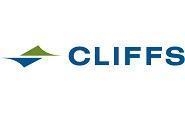Prices

October 24, 2019
Cleveland-Cliffs Beats Earnings Estimates Despite Challenges
Written by Sandy Williams
Weak steel prices and plummeting pellet premiums cut earnings significantly at Cleveland-Cliffs in the third quarter of 2019, but the company still beat analysts’ expectations. Revenues fell to $556 million compared to $742 million a year ago that included a one-time gain of $228 million due to a change in foreign currency translation. Third-quarter net income was $91 million.
Third quarter sales volumes fell to 5.75 million long tons from 6.48 million in Q3 2018. Realized revenue was $96 per long ton in the third quarter.
“The most surprising event of the quarter was the unnatural drop in the pellet premium, which from August to September represented the largest month-over-month change in history,” said Chairman and CEO Lourenco Goncalves.
The decline was caused by commercial moves made by iron ore producer Vale, the primary supplier of pellets to Europe. With steel demand down in Europe and Chinese steel diverted to the region, Vale agreed to renegotiate annual contracts with European steelmakers to give them a break, said Goncalves. In addition, late in 2018 Vale began using the 65% iron content index instead of the 62% based IODEX. The move caused the differential between the 65% index and the IODEX to drop from $30 last year to the current amount of $6—“a massive drop directly impacting the calculation of the Atlantic Basin premium.” The market was then thrown into further panic after Vale’s Brumadinho Dam disaster in January.
The 65% index is now coming back to a normal differentiation with the IODEX and will force the Atlantic Basin pellet back up, providing optimism for premium pellet pricing in 2020. Lower pellet prices forced Cliffs to reconsider 500,000 long tons of export sales planned for last July, which caused a reduction in the full volume outlook for 2019. Sales volume for 2019 is now revised to 19.5 million long tons from 20 million tons.
Construction of Cliffs’ HBI plant in Toledo is on track with the 457-foot tower at the facility completed on Sep. 30. The plant is scheduled to be operational in the first half of 2020. Cliffs is currently negotiating with steel companies that are interested in HBI.
Commented Goncalves, “These companies need metallics, and they have been importing pig iron from mainly Russia, Ukraine, and Brazil. Differently from imported steel, imported pig iron is not subject to any trading restrictions yet. But who knows if that may be the case in the future given the current and future geopolitical situation.”
Electric arc furnace production is the future of the steel industry, but fears of EAFs taking over all of the blast furnace market at once is unreasonable, said Goncalves. “While some less efficient blast furnaces have already shut down, the best-in-class ones are surviving and will actually stay in place for several years. There’s not even enough high-quality scrap and metallics to allow for EAFs to match the tonnage and quality levels that the best integrated steel mills currently produce and sell to high-end applications,” he added.
Goncalves also expressed his displeasure with major corporations for not doing more to pressure China to correct its pollution problem caused in part by inefficient steel mills using sub-par iron ore.
“Unfortunately, as we have seen in several current events, so far no one, and that includes Apple, Google, General Motors or even the NBA, is actually willing to risk losing exposure to that 1.4 billion person market,” said Goncalves. “With that, China continues to get a free pass to pollute the world and destroy jobs everywhere, while they grow their own middle-class and destroy ours.
“More than anything, we believe that the absurd levels of pollution in China should become a decision-making point on the investment thesis of ESG-driven institutional investors [ESG–environmental, social, governance]. We actually believe that these investors might play a major role going forward.”
In outlook remarks, Cleveland-Cliffs said it expects mining and pelletizing revenue rates in the range of $97 to $102 per long ton for the full year 2019. Sales volume is revised to 19.5 million long tons.







